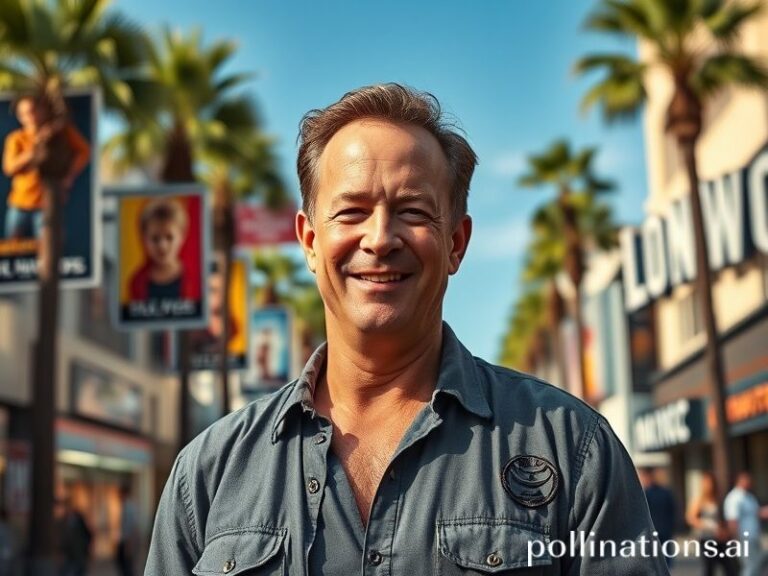Susie Ma’s Tropic Empire: How a Greenwich Market Stall Conquered the World One Guilt-Free Serum at a Time
Susie Ma, the London-born skincare tycoon whose surname translates to “horse” in Mandarin, has galloped so far ahead of the pack that even the global beauty industry—an arena not known for modesty—has started clearing its throat and pretending it always believed in her. From a one-woman stall at Greenwich Market hawking £6 sugar scrubs to a valuation nudging £300 million, Ma’s Tropic Skincare now ships to 28 countries, proving that exfoliation is the one export even Brexit couldn’t sabotage.
On paper, it’s the sort of uplifting post-college grind story LinkedIn gorges itself on: plucky graduate rejects Goldman Sachs, borrows £3,000 from her mother (interest rate: eternal guilt), turns kitchen blender into multinational factory, and still finds time to lecture on “purpose-led capitalism” at Davos. In reality, it’s also a masterclass in how geopolitical headwinds can be monetised. When Trump-era tariffs slapped 25 % on Chinese cosmetics, Ma simply rerouted via South Korea—because nothing says “clean beauty” like a 6,000-mile detour across the Yellow Sea.
The wider world has taken note. In Jakarta, Tropic’s vegan mists outsell local brands that once boasted nationalist credentials, a humiliation the Indonesian press has dubbed “the skincare Sunda Strait.” Down in São Paulo, beauty bloggers dissect Ma’s ingredient lists the way Kremlinologists once parsed Politburo line-ups. Meanwhile, EU regulators—who spent three years fretting over microplastics in face wash—now cite Tropic’s refillable pouches as the gold standard, presumably while sipping coffee from single-use cups.
There is, of course, the obligatory dark underbelly. Tropic’s supply chain stretches from FSC-certified rubber groves in Myanmar to biodegradable pumps made in northern Italy, meaning every serum is essentially a United Nations peacekeeping operation in a bottle. The carbon footprint is officially “net zero,” a phrase that works best if one squints hard enough to ignore the cargo flights full of influencer PR boxes circling Heathrow like vultures.
Still, Ma’s ascent coincides with a global moment when consumers want absolution as much as exfoliation. Climate anxiety? Slap on a guilt-free peptide mask. Post-pandemic identity crisis? There’s a turmeric-infused cleanser for that. Even the Chinese market—historically allergic to foreign indie brands—has embraced Tropic via cross-border e-commerce, proving that nationalism, like foundation, can be blended out when the shade is lucrative.
Critics, mainly rival CEOs who missed the cruelty-free wave, mutter that Ma’s real innovation is industrial-scale virtue signalling. They point to the brand’s “Infinite Purpose” manifesto, printed in soy ink on recycled paper, which pledges to “nourish skin, empower communities, and re-green the planet.” Whether the planet signed off on this tri-partite agreement remains unclear; its legal team has been busy with wildfires and melting permafrost.
Yet the numbers are stubborn. In 2023, Tropic’s revenue grew 42 % while the global beauty market limped at 4 %, a spread large enough to make even L’Oréal’s accountants consider monastic vows. More importantly, Ma has weaponised transparency as marketing: every batch code can be traced to a specific plantation, a gambit that makes competitors’ “clinically proven” claims sound like horoscopes.
What does it all mean, beyond the obvious lesson that vanity is recession-proof? First, that soft power now comes in recyclable pumps. Second, that in an age when states can’t agree on carbon quotas, a 36-year-old woman from Kent has achieved what COP summits merely promise: a supply chain that pretends to care. And third, that if you name your company after the most biodiverse region on Earth, you’d better be ready to plant one hell of a lot of trees.
So far, Ma has bankrolled 17 million—and counting. Whether those saplings will survive the century is a question for ecologists; whether her valuation will survive the next fad is a question for investors. In the meantime, the rest of us can exfoliate away our existential dread, one ethically sourced grain of sugar at a time.







